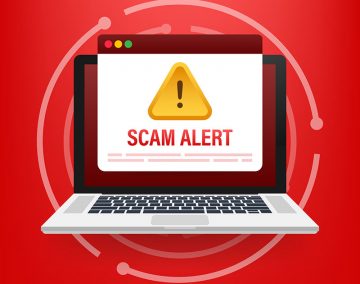Don't Fall For The "Claim Your Dreamloops NFT Mystery Box" Scam

Table of Contents
Unpacking the “Claim Your Dreamloops NFT Mystery Box” Email Scam
Another email scam is making the rounds, luring recipients with the promise of an exclusive mystery NFT box. This spam email promises recipients a limited-time offer to claim a unique NFT from the Dreamloops collection. It tempts users with a supposedly valuable mystery box. Our investigation reveals this email is nothing more than a cleverly crafted scam targeting those interested in NFTs or cryptocurrency.
How the Scam Works: Luring Users to a Fake Website
The email subject line, typically something like "Limited-Time Offer: Claim Your Dreamloops NFT Mystery Box!" suggests a sense of urgency. This limited-time offer message encourages recipients to act quickly to avoid missing out on a rare opportunity. By doing so, the scam preys on the fear of missing out (FOMO), hoping to prompt hasty clicks. When users click the "Claim Your NFT Mystery Box Now" button, they're directed to a fraudulent website designed to impersonate a legitimate NFT or blockchain platform.
Here's what the fraudulent email has to say:
Subject: Limited-Time Offer: Claim Your Dreamloops NFT Mystery Box!
Limited-Time Offer: Claim Your Dreamloops NFT Mystery Box!
Dreamloops NFT Mystery Box
Dear Dreamlands Member,
Hurry, Only 1,000 Boxes Available!
We're thrilled to offer you an exclusive opportunity to claim one of our 1,000 Dreamloops NFT Mystery Boxes!
Your NFT Mystery Box number: #4176
Each box contains a unique NFT, and some hold rare treasures!
Don't miss out-click the button below to secure yours before they're gone!
[Claim Your NFT Mystery Box Now]
Crypto Drainers: The True Intention Behind the Scam
Once on the fake site, users are met with a page that mirrors the appearance of real blockchain platforms, such as the well-known game "Axie Infinity." Here, unsuspecting victims are encouraged to connect their cryptocurrency wallets to claim their mystery box. Unfortunately, by connecting their wallets, users grant the scam site access, allowing it to drain digital assets without a trace. Since cryptocurrency transactions are generally irreversible, victims face slim odds of recovering any stolen funds.
The Broad Reach of Spam Campaigns
This scam is part of a wider trend of spam campaigns that misuse email, social media, and other communication channels to reach potential victims. Such spam messages often present enticing offers, urgent notices, or fake alerts regarding account security to grab users' attention. Some scams even mimic official messaging from reputable companies or platforms to build trust, proving that spam emails today are increasingly sophisticated and challenging to identify at first glance.
Common Strategies Scammers Use to Gain Your Trust
Modern spam emails often utilize professional language, branding, and logos so that users may overlook subtle warning signs. Messages from cybercriminals frequently simulate communications from banks, online stores, or popular services, often highlighting urgent account updates, exclusive offers, or potential security risks. Scams like this NFT mystery box campaign can also tie into trends, such as the growing interest in digital assets, to make their bait appear credible.
Malware and Phishing Tactics Embedded in Spam
Beyond cryptocurrency schemes, spam emails often distribute malware through infected attachments or links. Such emails may carry harmful files disguised as documents, software updates, or other seemingly legitimate content. Opening one of these files can trigger an automatic malware installation, which could lead to unauthorized access to the recipient's data or system. Some file types, like Microsoft Office documents, require users to enable specific functions (like macros), which may seem harmless but can initiate malware deployment.
Steps to Recognize and Avoid Email Scams
To steer clear of email scams like the Dreamloops NFT mystery box:
- Practice caution with every incoming message.
- When an email is unexpected, ask yourself whether its offer or message makes sense. If a message pushes urgency or "limited time" language, pause before clicking any links or buttons.
- Avoid opening links or attachments in messages from unknown senders or ones that look even slightly suspicious, as these are often key tactics in phishing attempts.
Safety Tips for Browsing and Downloading Content Online
While email is a common method for scammers, the broader internet also holds hidden risks. Be wary of unfamiliar websites and avoid downloading content from unverified or unofficial sources. When installing or updating software, always rely on legitimate channels to avoid the risks associated with third-party downloads. Additionally, enabling and regularly updating trusted antivirus software adds an essential layer of defense against emerging threats.
Final Thoughts
Scams like the "Claim Your Dreamloops NFT Mystery Box" email remind us of the need for vigilance when handling digital assets. As cryptocurrency and NFTs become more mainstream, scammers continue to craft schemes that exploit these interests. Maintaining a cautious approach toward all unsolicited digital communications and regularly educating oneself on new tactics will make it easier to navigate safely through an increasingly complex digital landscape.
By staying informed and skeptical of offers that seem too good to be true, you can safeguard both your financial assets and personal data from these deceptive schemes.







